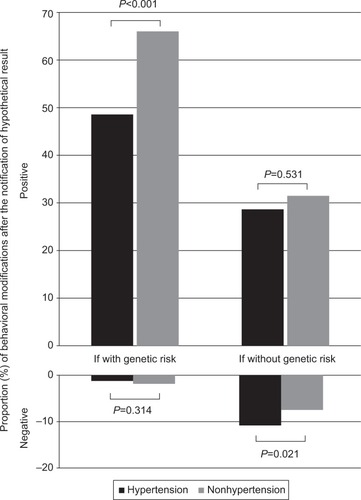Figures & data
Table 1 Demographic characteristics of study participants
Table 2 Behavioral changes after notification of test results among participants who had not reduced salt intake
Table 3 Behavioral changes after notification of test results among participants who had already reduced salt intake
Figure 1 Behavioral modifications following notification of hypothetical genetic test results of salt sensitivity.

Table 4 Relative ratios of behavioral modifications after notifications of genetic risk between hypertensive and nonhypertensive patients
